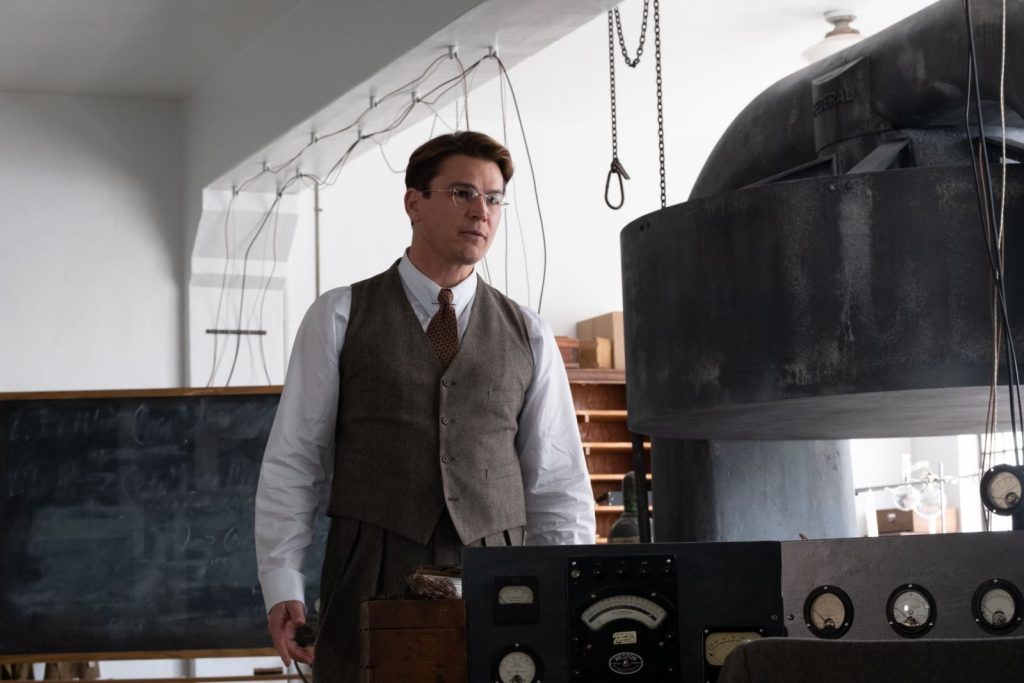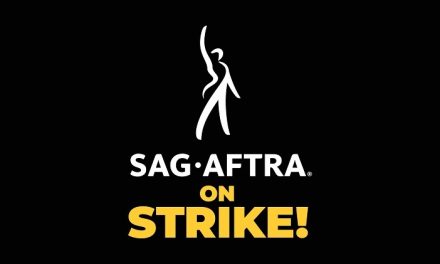I love horror movies. I love being scared in the theater. That type of fright still lets you know that everything will be alright when you leave the theater. When the lights come up, Freddy Krueger isn’t there anymore. With Oppenheimer, the monster remains. The fear and tension stay with you long after the credits roll. Through all of that human self-reflection on display with Oppenheimer, Christopher Nolan does what only the greats do. He makes briefing testimony and what would normally be boring conversations into high-tension affairs.
He turns a history textbook’s worth of material into a riveting filmmaking experience. It doesn’t fall into the normal traps of historical biographical pieces. This doesn’t glorify the man J. Robert Oppenheimer. It doesn’t even really paint him in a great light. He was a womanizing, self-indulgent, self-important man that guided the creation of the worst weapon known to mankind. Other filmmakers might go the route of trying to clean up and revitalize the image of Oppenheimer. Nolan does not. The only person who leaves Oppenheimer unscathed and looking better and brighter is Robert’s wife, Kitty Oppenheimer.
From the performances to the music, the effects, the cinematography, and the story on display, Oppenheimer is about as perfect as a movie gets. It’s a stunning display of filmmaking about the modern Prometheus.
Which Performance Is The Best In Oppenheimer?

Robert Downey Jr. is going to get a lot of press for his performance as Lewis Strauss. He’s fantastic and deserves whatever praise he’s going to get come award season. However, do not let that take anything away from the magnanimous, emotional, soulful, soulless, and absolutely masterful performance that Cillian Murphy gives as J. Robert Oppenheimer in this film. Like the solar system, every performance revolves around him in this film. Murphy owns the role so well that it’s incredibly difficult to imagine anyone else doing it. Even with Downey’s performance, I could see a couple of other actors doing well in the role. Murphy takes material that is weighty and deep and strips it down bare.
He’s playing a man that has all of humanity weighing down on him. J. Robert Oppenheimer had to live after the fact with the new world he helped created and shepherd. You get that feeling and then some with Murphy’s performance here. He shines in the film’s first half, but it’s really in the second half when you get into an all-time performance from Murphy. The way he shows the weight of the creation of the atomic bomb comes off in ways that you will never forget. There’s almost a giddy, adolescent energy to his performance in the movie’s first half that gets stripped away as they get closer and closer to creating the bomb.
Those two performances might dominate the press, but Emily Blunt gives a subdued performance opposite Murphy, but you cannot keep your eyes off her. She commands the screen, and in one scene toward the end of the film, she absolutely steals the show. She plays off like she’s coy and nervous under absolutely demanding cross-examination by Roger Robb (played by Jason Clarke, as an all-time deranged and assholic performance), and then flips on a dime into power and takes the entire dynamic of the scene. Those three drive the film in their own ways and represent the three branches of the film: science, politics, and the family.
What About The Supporting Cast?

With a three-prong of excellent leads, they’re supported by some of the best performances in recent memory in these types of roles. Between Matt Damon as Leslie Groves, the army general behind the Manhattan Project, he gives some levity to a film that desperately needed it. He basically babysits Oppenheimer and his crew as they make the bomb. Alden Ehrenreich has a small role attached to Downey Jr.’s character, but wow, his character also flips on a dime with confidence and bravado opposite a stunning performance. He steals scenes from Downey.
Florence Pugh gives a rougher element to Oppenheimer and his womanizing by being the woman he leaves for Kitty. It’s a tragic turn of the normal affairs in a movie like this, and adds to the overall proceedings with her political leanings. She’s part of an absolutely heartwrenching scene with Blunt and Murphy.
The true smash of all the supporting roles is Josh Hartnett though. In the small amount of scenes he’s involved in, he steals the screen. This is no teen heartthrob any longer; Hartnett ends up as an important part of the overall story helping along Oppenheimer during his tenure at Berkeley and just absolutely stealing scenes along the way.
That’s just scratching the surface of performances in this film, though. They all aid the film and add to the overall excellence on display.
How Are The Effects, Sound Design, And Cinematography?

Nolan and Cinematographer Hoyt Van Hoytema give us some of his illustrious career’s most stunning and sweeping shots. It’s saying something that the actual atomic bomb explosion in this film isn’t even in the top 10 of the most beautiful shots in the film. It takes the drab and dreary Washington aesthetic and turns it into something awe-inspiring with excellent use of colors. The actual explosion in the film is likely everyone’s most anticipated moment, and it doesn’t go quietly. It’s disturbing and surreal when it happens. Nolan milks the moment for as long as it can go and then lets it rip. He allows the tension to build with a ticking clock and the movement of everyone involved.
The sound design lends itself to one of the loudest movies I’ve ever heard. It uses explosions and crackles of energy as a soundtrack. There’s no sweeping music from composer Ludwig Goransson when the moment comes. It’s just the sound of humanity moving into a new terrifying era.
There was a lot made about “there being no CGI” in Oppenheimer. That’s a bit of an untruth because there are effects used, but it’s not in the way you’d think. The film centers on the use and creation of the atomic bomb, but the actual moment isn’t the focus at all.
A Perfect Film That Will Never Leave You
I’m trying to remember the last movie that made me feel how I felt after walking out of Oppenheimer. It was a combination of awe, wonder, fright, and self-reflection. Oppenheimer takes audiences on one of the most important and breathtaking journeys set to flim but also focuses on the somewhat mundane of J. Robert Oppenheimer’s life. It takes you through the human experience, the politics behind one of the most horrific acts of humanity, and the science and people behind it. This movie won’t be leaving us anytime soon and provides a deeply personal look into ourselves and how we have to think about the consequences of our actions as a race.
For more Reviews, make sure to check back to That Hashtag Show.

![Oppenheimer – Christopher Nolan’s Magnum Opus [Review]](https://thathashtagshow.com/wp-content/uploads/2023/07/361940015_1314022649466442_6751707251390505893_n-1200x640.jpg)

![THS Weekend Watch: March 12th [Releases]](https://thathashtagshow.com/wp-content/uploads/2022/03/project_20220311_0929033-01-440x264.png)
![‘Summer Camp’ Misses The Bullseye [Review]](https://thathashtagshow.com/wp-content/uploads/2024/05/Summer-Camp-review-440x264.png)

